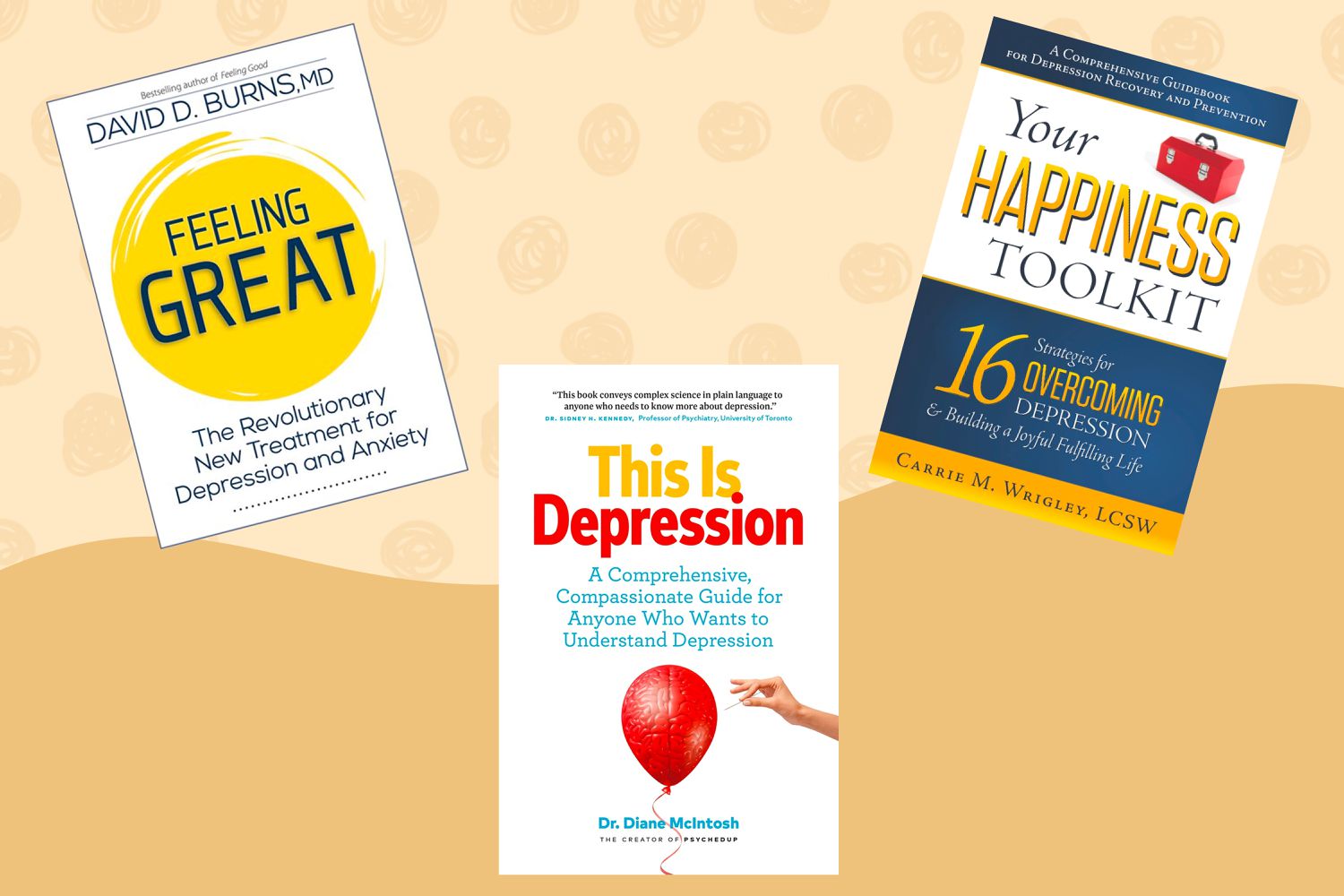Strategies for coping with stress and anxiety include practicing relaxation techniques and engaging in regular exercise. Stress and anxiety are common experiences that can have a negative impact on our well-being.
Whether it’s work-related pressure, relationship problems, or financial worries, finding strategies to cope with these feelings is essential for maintaining a healthy and balanced life. One effective approach is to practice relaxation techniques, such as deep breathing, meditation, or progressive muscle relaxation.
These techniques help to calm the mind and reduce the physical symptoms of stress and anxiety. Engaging in regular exercise is also beneficial as it releases endorphins, reduces tension, and improves overall mood. By implementing these strategies into our daily routine, we can effectively manage stress and anxiety, promoting a sense of well-being and peace in our lives.

Credit: www.everydayhealth.com
Understanding The Effects Of Stress And Anxiety
Understanding the effects of stress and anxiety is crucial for finding effective coping strategies. By recognizing both the physical and mental symptoms, individuals can take necessary actions to mitigate their impact. Common signs include increased heart rate, muscle tension, irritability, and difficulty concentrating.
These symptoms can escalate into more severe health issues, such as high blood pressure, weakened immune system, and mental health disorders. It is important to prioritize mental well-being and adopt stress management techniques to prevent long-term consequences. Engaging in regular exercise, practicing mindfulness and relaxation techniques, maintaining a healthy diet, and seeking support from loved ones or professionals are all invaluable strategies.
By addressing stress and anxiety proactively, individuals can improve their overall quality of life and achieve a greater sense of well-being.
Identifying Personal Triggers
Identifying personal triggers will help in coping with stress and anxiety effectively. Reflecting on individual stress and anxiety triggers enables one to recognize patterns and common stressors. By understanding what specifically triggers stress and anxiety, individuals can develop strategies to manage and alleviate these feelings.
This self-reflection process allows for a deeper understanding of one’s emotional and mental state. It empowers individuals to take control of their well-being and implement proactive measures to prevent stress and anxiety. By identifying personal triggers, individuals can create a personalized toolkit that includes relaxation techniques, mindfulness practices, and stress-reducing activities.
This self-awareness paves the way for developing a healthier lifestyle and achieving a greater sense of calm and peace. With a focused approach on personal triggers, individuals can make positive changes to live a more balanced and stress-free life.
The Connection Between Stress And Anxiety
Stress and anxiety are closely interconnected, with stress often triggering or worsening anxiety. Understanding the relationship between the two is crucial for effective coping strategies. Stress, whether caused by work, personal relationships, or other factors, can increase feelings of anxiety and exacerbate existing anxiety disorders.
When stress becomes chronic, it can overwhelm the body’s ability to cope, leading to heightened anxiety levels. Identifying and managing stressors is key to breaking this cycle. Techniques such as deep breathing exercises, mindfulness, and physical activity can help reduce stress and alleviate the symptoms of anxiety.
Additionally, building a strong support system and seeking professional help when needed can provide crucial support in managing stress and anxiety effectively. By addressing stress and anxiety together, individuals can develop strategies to regain control and improve their overall well-being.
Develop Healthy Coping Mechanisms
Developing healthy coping mechanisms is crucial for managing stress and anxiety. One effective strategy is to incorporate regular exercise and physical activity into your routine. Engaging in activities like walking, jogging, or yoga can help reduce tension and release endorphins, which improve mood.
Additionally, practicing mindfulness and meditation can help you stay present and calm your mind. Taking a few minutes each day to focus on your breath and let go of negative thoughts can significantly reduce stress levels. By adopting these strategies, you can develop healthy coping mechanisms and better navigate the challenges of daily life.
Utilize Support Systems
Coping with stress and anxiety is crucial for overall well-being. Utilizing support systems can greatly help in this process. Seeking out supportive friends and family can provide a sense of comfort and understanding. Additionally, considering therapy or counseling can offer professional guidance and techniques for managing stress and anxiety.
These support systems can provide a safe space to express emotions and learn coping strategies. Building a strong support network and reaching out for professional help are essential steps in reducing stress and anxiety. Remember, you don’t have to face these challenges alone.
Seek support from loved ones and professionals who can help you navigate through difficult times.
Make Lifestyle Adjustments
To effectively cope with stress and anxiety, it is essential to make lifestyle adjustments. Prioritizing self-care and relaxation techniques should be at the top of your list. Creating a balanced routine and managing your time properly will contribute to your overall well-being.
By taking care of yourself and incorporating activities that promote relaxation, such as meditation or exercise, you can reduce stress levels. Additionally, practicing good time management skills allows you to stay organized and avoid feeling overwhelmed. It is important to find a balance that works for you and allows you to maintain a healthy and stress-free lifestyle.
Maintain Positive Relationships
Maintaining positive relationships is crucial for coping with stress and anxiety. Building a strong support network allows you to lean on others during difficult times. By nurturing healthy relationships and connections, you can gain the emotional support needed to combat stress.
Surrounding yourself with understanding and caring individuals helps create a positive environment that can reduce anxiety levels. Sharing your thoughts and feelings with trusted friends and family members can also bring a sense of relief and comfort. Developing meaningful connections and engaging in open and honest communication can provide a solid foundation for stress management.
Remember, you don’t have to face stress and anxiety alone; having a support network in place can make a significant difference in your overall well-being.
Practice Self-Compassion
Strategies for coping with stress and anxiety involve practicing self-compassion. Embrace self-care and self-acceptance, challenging negative self-talk. Taking care of yourself and being kind to yourself can help manage stress and anxiety. Replace self-criticism with self-encouragement. Focus on positive affirmations and surround yourself with supportive people.
Engage in activities that bring joy and relaxation. Prioritize your physical and mental well-being by implementing self-care routines. This could include exercise, meditation, and setting boundaries. Pay attention to your thoughts and replace negative ones with positive ones. Remember, self-compassion is key in managing stress and anxiety.
By implementing these strategies, you can improve your overall well-being and find relief from the burdens of stress and anxiety.
Seek Professional Help When Needed
Professional help should be sought when experiencing high levels of stress and anxiety. It is important to recognize the signs that indicate professional intervention is necessary. Understanding the available treatment options can empower individuals to make informed decisions about their mental health.
Through therapy, medication, or a combination of both, professionals can provide guidance and support in navigating these challenges. Seeking professional help can reduce the risk of complications and enhance overall well-being. By addressing stress and anxiety in a proactive manner, individuals can regain control over their lives and improve their quality of life.
Remember, reaching out to a professional is a sign of strength and self-care.
Conclusion
In a fast-paced world where stress and anxiety seem to be constant companions, it is crucial to have effective coping strategies in place. By implementing these strategies, individuals can regain control over their lives and experience improved mental well-being. Prioritizing self-care is essential; taking time for activities that bring joy and relaxation can help alleviate stress.
Building a support network is another valuable tactic, as sharing concerns and seeking advice from trusted loved ones is both comforting and empowering. Engaging in regular exercise not only benefits physical health but also releases endorphins, boosting mood and reducing anxiety.
Incorporating mindfulness practices into daily routines can train the mind to stay present and calm, reducing the impact of stressors. And finally, seeking professional help is never a sign of weakness but rather a proactive step towards better mental health.
Remember, small changes in lifestyle and mindset can have a significant impact on stress and anxiety levels. So start implementing these strategies today and embrace a more peaceful and balanced life.

